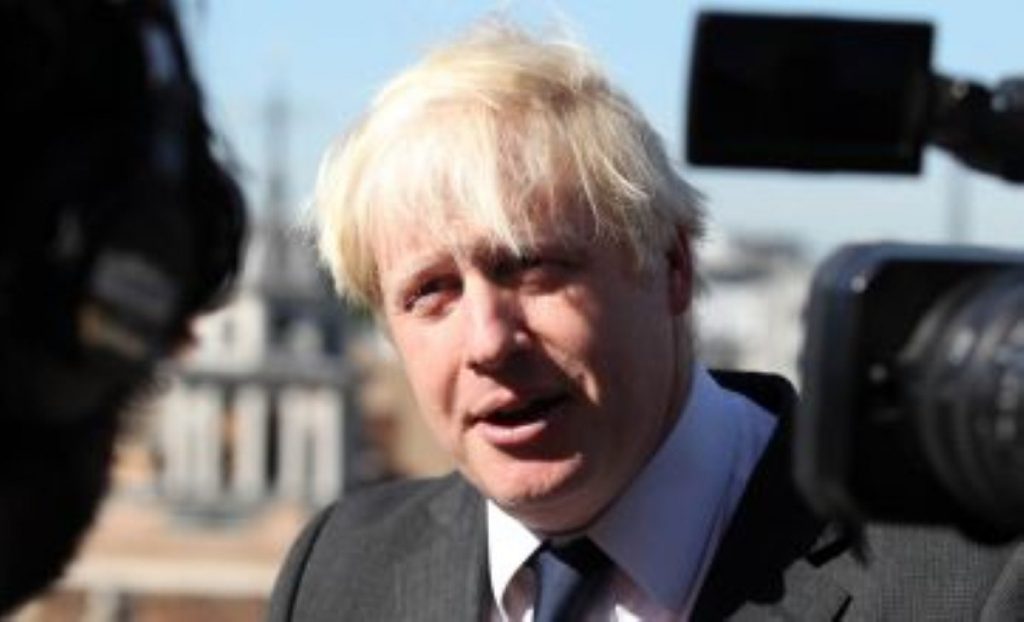Directly elected mayors: A rare case of justified hypocrisy?
The public rejected directly elected mayors – so is George Osborne wrong to propose forcing them on voters?
Just two years have passed since the coalition asked ten cities whether they wanted to replace their existing local government arrangements with an all-powerful mayor.
Nine of them rejected the idea – but now Osborne's 'northern powerhouse' speech has put it back on the table.
"There are big advantages in having an elected mayor to represent your city," the chancellor declared in Manchester this morning.


"To fight your corner in the world. To have someone democratically accountable to the whole city who can deal with issues like transport or economic development or fighting crime.
"Today I am… starting the conversation about serious devolution of powers and budgets for any city that wants to move to a new model of city government – and have an elected mayor. A mayor for Greater Manchester. A mayor for Leeds. With powers similar to the mayor of London."
Politicians, seeing what Ken Livingstone and Boris Johnson have done for the capital, tend to think that putting more power in the hands of a single executive office would be a Good Thing for most of Britain's smaller cities.
Osborne was among those making the arguments for the change just two years ago. With the exception of Bristol, they were completely unsuccessful. "The campaign was a complete disaster," Policy Exchange's former deputy director David Skelton told me shortly after the results came in. Stuart Wilks-Heeg of Democratic Audit explained: "Usually when people are presented with a referendum they say 'I'll leave it how it is', particularly when they don't understand the issues that well."
Anyone who makes it to Westminster can sniff disengagement a mile off, which is why momentum has been growing for a reversal of the popular will so quickly. Indeed Osborne's announcement today is a victory for Tory backbencher Rory Stewart, who has been calling for the 2015 Conservative manifesto to include plans to introduce mayors whether voters want them or not.
"The mistake was to give people a vote on whether they wanted a mayor or not," he says. "I don't think people know whether they want a mayor until they've got one."
What a contrast with the electoral reform referendum of 2011, which the Conservatives said had put the issue to a bed for a generation. Not so directly elected mayors, which are back with a vengeance.
The political will is there for the change – and yet getting more Borises into politics is not a prospect welcomed by many. Across Europe, all sorts of problems have been encountered.
There are the dangers of a paralysis called by 'cohabitation', when the mayor and assembly represent the political parties. Who wants to see the sort of deadlock so often suffered by the White House and Congress?
There's the enhanced fear of 'presidentialism' – the excessive concentration of power in the mayor's hands. This is a particular worry among local MPs who feel their influence will be diluted by the introduction of a bombastic ego – even a celebrity. Populism, at the very least, is going to get a substantial boost. And mayors might become stupider, as fewer qualifications would be needed and fewer hurdles would have to be passed for them to get the job.
Some of these arguments are clearly anti-democratic, though. Reformers would say that policies which people like are, ultimately, for the best. Does that balance out the rapidity of the U-turn following the 'no' votes of 2012? Birmingham, Nottingham, Manchester, Bradford, Coventry and others all said they'd rather stick with the status quo. Now Osborne is looking to change all that.
The chancellor's gamble is that, once up and running, mayoralties will be demonstrably more democratic, efficient, visible and involving the citizenry. They might even help undermine the influence of political parties in local government, too.
"Perhaps simplistically," a Council of Europe report states, "voters are known generally to prefer faces to institutions, individuals to collectives, the more so if they feel they have had an effective say in exercising a personal preference." If that's really the case then this would be a rare case of politicians overriding the voters because they know what's best. Let's just hope, Osborne et al will be thinking, they don't notice the hypocrisy.












